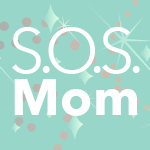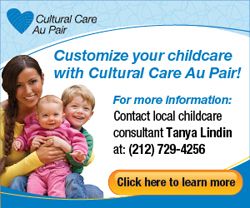No matter how we look at it, we have all been afflicted by cancer, near or far. I myself have had family members close to me diagnosed with breast cancer and who have, thankfully, survived. Like any other type of disease, breast cancer doesn't discriminate. Whether you are young, old, rich, poor, married, single, it does not matter. Every woman is at risk. In 2010, nearly 1.5 billion people were told "you have breast cancer". That is a lot. That is too much. Countries such as United Kingdom and USA have one of the highest incidence rates worldwide, together with the rest of North America and Australia/New Zealand. In Western countries, 89% of women diagnosed with breast cancer are still alive 5 years after their diagnosis, thanks to detection and treatment. It is stated by Worldwide Breast Cancer that one-third of breast cancer deaths could be avoided if detected and treated early. On a worldwide basis, this basically represents nearly 400,000 lives that could be saved every single year. Again, extremely significant numbers.
Which leads me to remind you about the importance of Breast Cancer Awareness Month and the main purpose of this noble campaign: awareness. Their goal, evidently, is to increment awareness amongst the population and raise funds for its research. All the money goes towards the cause, prevention, diagnosis, treatment, and ultimately, a cure. It also provides advocacy, education, guidance and support for anyone and everyone, but above all, the ones affected by breast cancer. The World Health Organisation [WHO] related that two components of early detection have been shown to improve cancer mortality:
- Education, which in turn helps people recognize early signs of cancer and seek prompt medical attention for symptoms.
- Screening programs, which are a great tool in helping identify early cancer or pre-cancer before signs are recognizable, including mammography for breast cancer.
Knowing your risk, getting screened on a regular basis and educating yourself on the symptoms will all play a dominant role in preventing possible breast cancer. According to the National Cancer Institute, anything that increases the chance of developing a disease is called a risk factor. Risk factors for breast cancer include the following:
- Age
- Age at the start of menstruation
- Age at first live birth
- Number of first-degree relatives (mother, sisters, daughters) with breast cancer
- Number of previous breast biopsies (whether positive or negative)
- At least one breast biopsy with atypical hyperplasia
Keep in mind, being at risk does not mean you will be hit by breast cancer. Some individuals with low risks unfortunately end up being diagnosed with breast cancer, while some at high risk live their life without the cancer ever manifesting itself. Evidently, when one has knowledge of being at high risk, the best and highly suggested plan of action is determining a screening plan with a doctor's help, and making sure it's honoured.
Even though 25-35% of breast cancers are discovered by patients, screening is key. Make sure you plan a visit with your doctor every 1 to 3 years for your mammogram. This exam will be able to detect any lump down to the size of a fingertip. On the other hand, a self-exam will only allow you to mainly find lumps of greater size than your elbow. Hence the importance of being breast aware but also, being disciplined with your doctor checkups and discussing any unusual changes or concerns with your practitioner. Let's also leave the myths behind for a second and state the facts. Men are as vulnerable to breast cancer as women are. Of all the cases identified across the globe, get this, 1% are men. Utterly surprised? I certainly was!
More and more every year, people from all corners of the world are taking part in the cause. Just for starters, the Race for the Cure started off in the U.S. back in 1983 and has now become a full-fledged, worldwide event. Countries such as Canada, Russia, Australia, New Zealand, Germany, Netherlands, Italy, United Kingdom are just to name a few who took an oath to the breast cancer cause by organizing the event in their respective community. Ask around in your community and inform yourself on the local events and what you can do to help. You have no idea the amount of gratitude that will stem from your involvement.
So in light of this great month ahead of us, I strongly encourage all of you, women and men, to dedicate part of your time to this worthy cause. Any gesture counts. Whether you donate, walk for the cause, get involved in your community, organize a fundraiser at work, shave your head, or simply wear the ribbon, you can make a difference. Show off your pink colours, show you care...
To donate from anywhere in the world, anytime of the day, please click here. Thank you for your generosity!
*I would like to thank Worldwide Breast Cancer and the National Cancer Institute for their great tools to write this article.

































7 Fabulous Comments:
I don't know anyone that has had Breast Cancer, but I lost an aunt to lung cancer. :( I participate in Relay for Life every year :)
Great post! This will be a great reminder to all!
Yes, I will. Our aunt had breast cancer and she survived. Praise God:) Thanks for sharing.
Great Article with lot's of great facts. We definately need more awareness about Breast Cancer and for Women to take it seriously. My son did relay for life this summer! It was an eye opener for my 16 year old!
Blessings!
My aunt passed away 35 years ago from breast cancer. She left behind young children. The treatments back then were not as advanced as they are today. Thanks for posting, great reminder for all of us.
Those are good facts. I am working with Chevy right now on the #drive2endcancer! Great job!
Wow, great article, I really appreciate your thought process and having it explained properly, thank you!
Stereotactic breast biopsy
Post a Comment